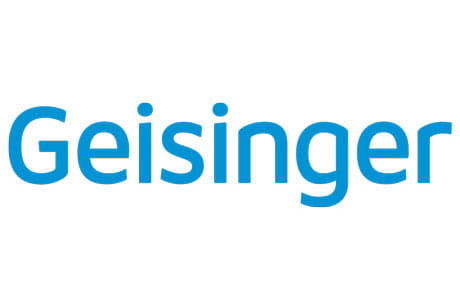Geisinger researchers find AI can predict death risk
Algorithm using echocardiogram videos of the heart outperforms other predictors of mortality
The algorithm—an example of what is known as machine learning, or artificial intelligence (AI)—outperformed other clinically used predictors, including pooled cohort equations and the Seattle Heart Failure score. The results of the study were published in Nature Biomedical Engineering.
“We were excited to find that machine learning can leverage unstructured datasets such as medical images and videos to improve on a wide range of clinical prediction models,” said Chris Haggerty, Ph.D., co-senior author and assistant professor in the Department of Translational Data Science and Informatics at Geisinger.
Imaging is critical to treatment decisions in most medical specialties and has become one of the most data-rich components of the electronic health record (EHR). For example, a single ultrasound of the heart yields approximately 3,000 images, and cardiologists have limited time to interpret these images within the context of numerous other diagnostic data. This creates a substantial opportunity to leverage technology, such as machine learning, to manage and analyze this data and ultimately provide intelligent computer assistance to physicians.
For their study, the research team used specialized computational hardware to train the machine learning model on 812,278 echocardiogram videos collected from 34,362 Geisinger patients over the last ten years. The study compared the results of the model to cardiologists’ predictions based on multiple surveys. A subsequent survey showed that when assisted by the model, cardiologists’ prediction accuracy improved by 13 percent. Leveraging nearly 50 million images, this study represents one of the largest medical image datasets ever published.
“Our goal is to develop computer algorithms to improve patient care,” said Alvaro Ulloa Cerna, Ph.D., author and senior data scientist in the Department of Translational Data Science and Informatics at Geisinger. “In this case, we’re excited that our algorithm was able to help cardiologists improve their predictions about patients, since decisions about treatment and interventions are based on these types of clinical predictions.”
The research was supported in part by funding from the Pennsylvania Department of Health and the Geisinger Health Plan and Clinic.
About Geisinger
Geisinger is among the nation’s leading providers of value-based care, serving 1.2 million people in urban and rural communities across Pennsylvania. Founded in 1915 by philanthropist Abigail Geisinger, the non-profit system generates $10 billion in annual revenues across 134 care sites - including 10 hospital campuses, and Geisinger Health Plan, with 600,000 members in commercial and government plans. The Geisinger College of Health Sciences educates more than 5,000 medical professionals annually and conducts more than 1,400 clinical research studies. With 26,000 employees, including 1,600 employed physicians, Geisinger is among Pennsylvania’s largest employers with an estimated economic impact of $14 billion to the state’s economy. On March 31, 2024, Geisinger became the first member of Risant Health, a new nonprofit charitable organization created to expand and accelerate value-based care across the country. Learn more at geisinger.org or connect with us on Facebook, Instagram, LinkedIn and X.

For media inquiries:
Ashley Andyshak Hayes
Marketing Strategist
Marketing & Communications
570-271-8081
arandyshakhayes@geisinger.edu
